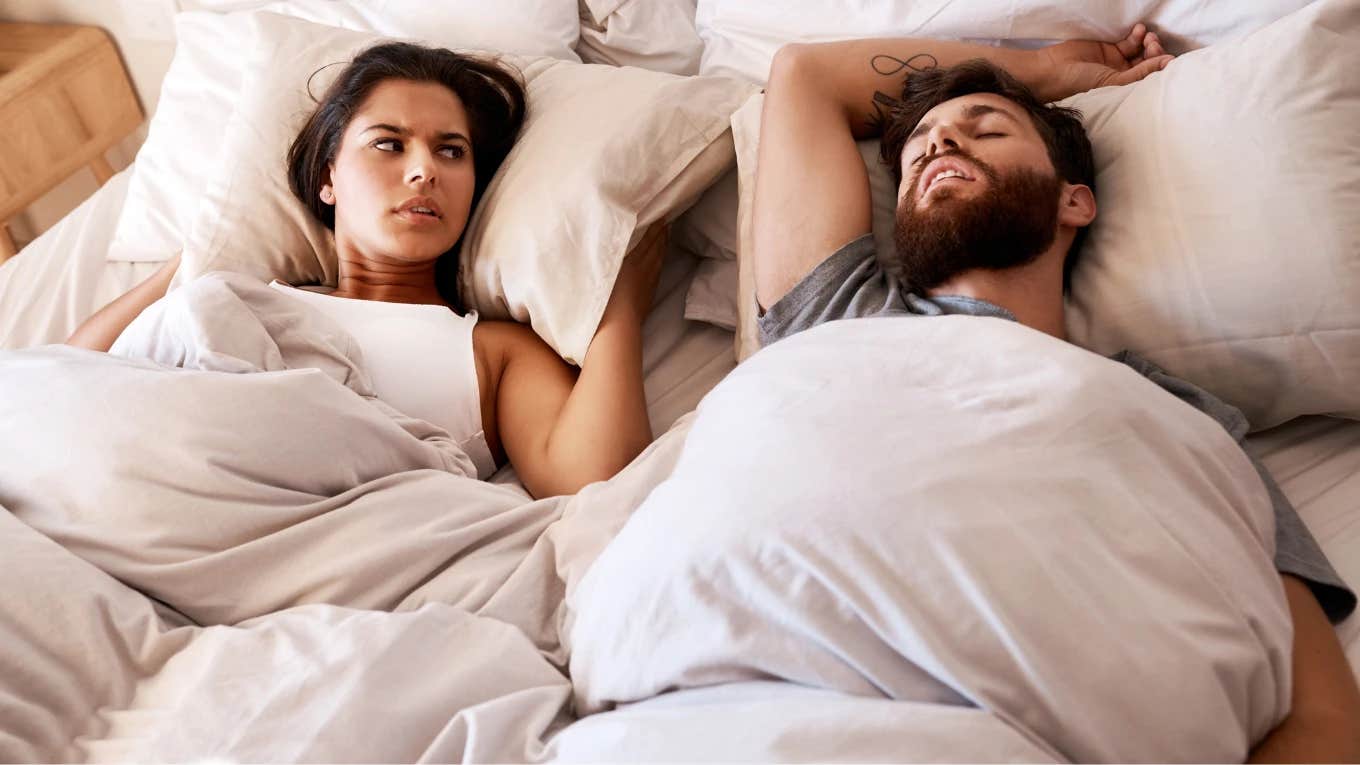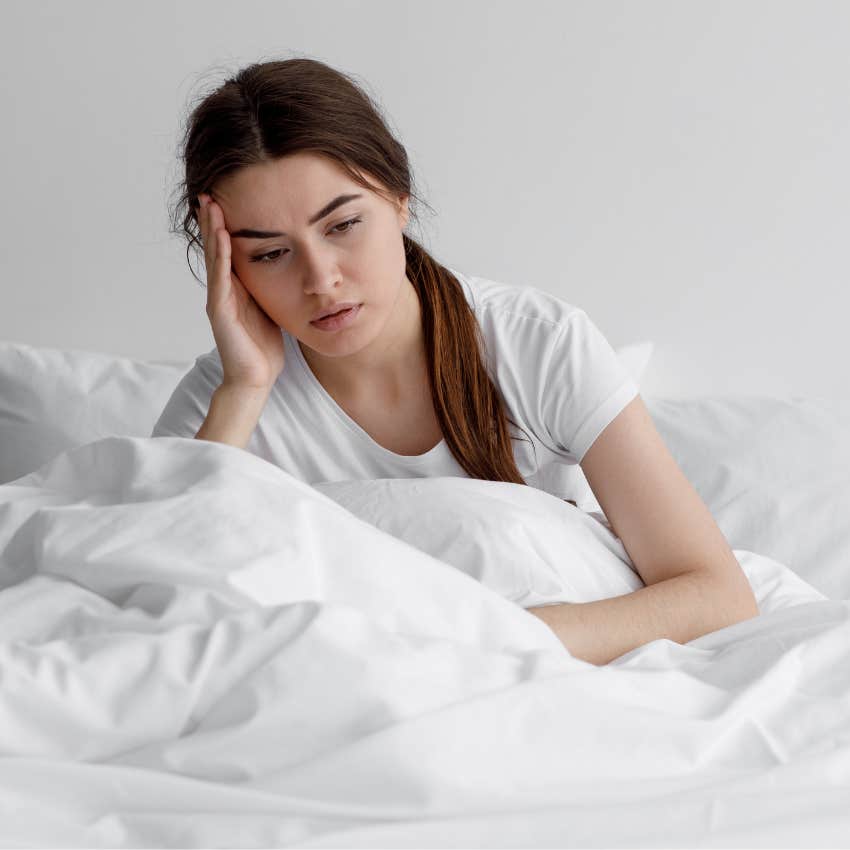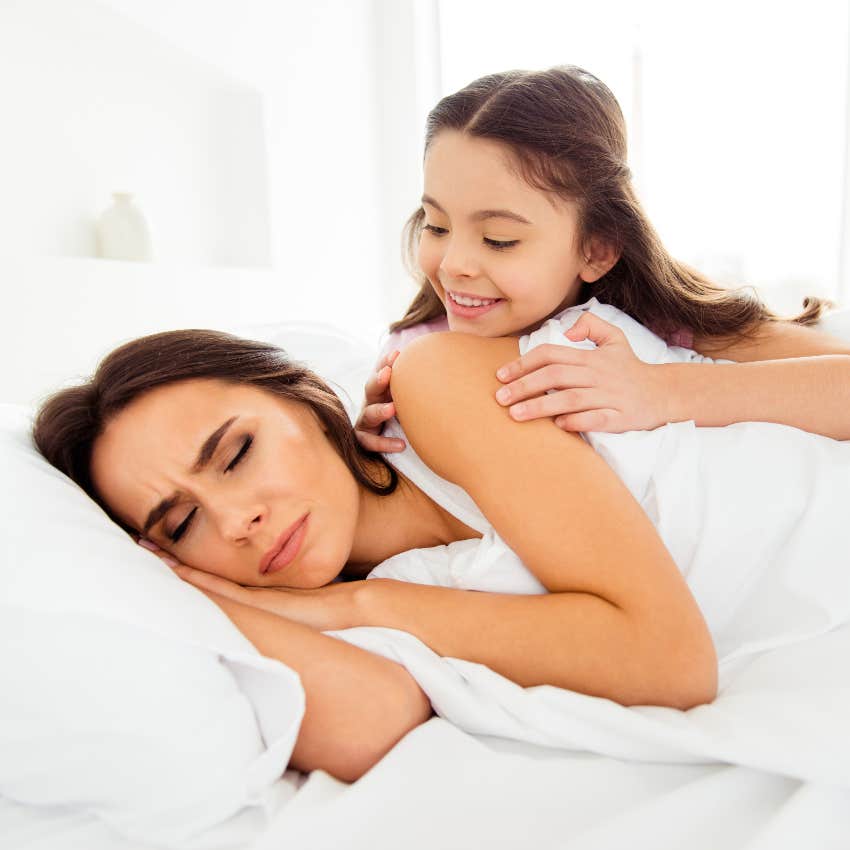3 Reasons Women Sleep Worse At Night Than Men
Low quality sleep has negative effects on your waking hours.
 Prostock-studio / Shutterstock
Prostock-studio / Shutterstock All too often, getting a good night’s sleep feels elusive. Even if you’re tired and go to bed at a reasonable hour, there’s no guarantee that you’ll fall asleep easily or stay asleep throughout the night. And our sleep affects our life in major ways: Getting less sleep can lead to increased anxiety and depression and the all-around feeling of brain fog.
While sleep research abounds, there’s less information available on how women sleep compared to men. In part, this is due to historical factors: Women’s health has long been excluded from major scientific studies, and the National Institute of Health didn’t require studies to account for biological sex as a variable until 2016.
Yet more scientists are finally starting to look into why men and women sleep so differently.
Here are 3 reasons why women sleep worse at night than men:
1. Women are more likely to have insomnia
As far as sleep disorders go, men and women are faced with different health struggles.
Men are more likely to have obstructive sleep apnea, a condition in which the upper airway gets blocked during sleep. Yet even when that information is taken into account, men still seem to sleep better than women.
Women are 1.5 times more likely to experience insomnia than men.
Acute insomnia can be defined as specific periods of time when it’s hard to fall asleep, stay asleep, or get high-quality sleep. Chronic insomnia happens when those sleep disruptions occur at least three times a week for over three months.
In addition to having a higher occurrence of insomnia, women also have a 25 to 50% increased likelihood of having restless legs syndrome, which can make it hard to fall asleep and stay asleep.
Women also report more fluctuations in the quality of sleep they get. Thirty-three percent of women report waking up throughout the night, while only 27% of men do.
Women have more interrupted sleep patterns than men. They sleep for about 8 minutes longer in non-REM sleep, the period of time when brain activity slows down, yet they also report waking up more often throughout the night.
 Prostock-studio / Shutterstock
Prostock-studio / Shutterstock
Almost one-third of women say they rarely or never wake up feeling well-rested, while only 17% of men report the same.
In many ways, sleep is that magic bullet that stabilizes moods and lowers anxiety, so when we don't get enough of it, our well-being suffers.
2. Women’s hormones affect how they sleep
There’s a distinct connection between women's hormonal changes and their quality of sleep, especially as they age.
Almost 25% of women between the ages of 18 and 24 lose sleep due to symptoms of PMS. The last phase of menstruation, known as the luteal phase, leads to lower quality sleep, in part because women’s core body temperature rises during this time.
Fifty-three percent of women between the ages of 45 and 54 lose sleep because of perimenopause or menopause. After 54, 21% lose sleep due to menopause, which creates dropped estrogen levels.
The hormonal changes brought on by pregnancy also lead to interrupted sleep.
Historically speaking, there hasn’t been much in-depth research done on menopause or its connection to sleep, yet it seems that increased conversation around this crucial life change is leading more scientists to look into the physiological aftermath of menopause.
3. Women get woken up more by their kids
More often than not, women with children are the primary parents. According to a 2024 survey from Sleepfoundation.org, caregiving costs women their rest.
Twelve percent of women reported waking up in the middle of the night to care for others, a percentage that’s two times higher than men who do the same.
 Roman Samborskyi / Shutterstock
Roman Samborskyi / Shutterstock
Over half of women between the ages of 25 and 44 who have kids get less than 7 hours of sleep a night, which is the recommended amount of sleep. Only 38% of men with kids reported getting less than 7 hours of sleep.
In addition, women with kids reported that high levels of stress and anxiety often keep them from falling asleep at night, as they lay awake in the dark, worrying. Moms are 9% more likely to lose sleep because of caregiving worries and 13% more likely to lose sleep because of their household responsibilities than men are.
Practicing good sleep hygiene is one way to get better quality sleep.
Having a consistent bedtime and letting yourself decompress for at least an hour before getting into bed, without the use of screens, is crucial to adjusting our circadian rhythms, which regulate our sleep.
Keeping your room at a cool temperature can also help regulate core body temperature, especially when hormonal changes are at play.
There are more scientific studies specifically geared towards how women sleep now than in the past, which hopefully will shed light on how we can consistently get a good night’s rest, in order to wake up and take on the world.
Alexandra Blogier is a writer on YourTango's news and entertainment team. She covers social issues, pop culture, and all things to do with the entertainment industry.

